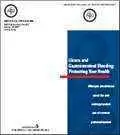Celiac.com 01/15/2014 - Complicated celiac disease is uncommon, but patients have high death rates, say a team of researchers, who recently set out to better understand the epidemiology of complications in patients with celiac disease.
 The research team included F. Biagi, P. Gobbi, A. Marchese, E. Borsotti, F. Zingone, C. Ciacci, U. Volta, G. Caio, A. Carroccio, G. Ambrosiano, P. Mansueto, G.R. Corazza. They are affiliated with the Coeliac Centre/First Department of Internal Medicine at the Fondazione IRCCS Policlinico San Matteo at the University of Pavia in Italy.
The research team included F. Biagi, P. Gobbi, A. Marchese, E. Borsotti, F. Zingone, C. Ciacci, U. Volta, G. Caio, A. Carroccio, G. Ambrosiano, P. Mansueto, G.R. Corazza. They are affiliated with the Coeliac Centre/First Department of Internal Medicine at the Fondazione IRCCS Policlinico San Matteo at the University of Pavia in Italy.
Celiac.com Sponsor (A12):
The team conducted a retrospective multi-center case-control study based on collection of clinical and laboratory data. They looked at incidence of complicated celiac disease among celiac patients directly diagnosed in four Italian centers.
Their study did not include patients referred to these centers after being diagnosed with celiac disease and/or complicated celiac disease at other facilities.
Between January of 1999 and October 2011, the team followed-up on 1840 adult celiac patients, for a total of 7364.3 person-years. They found that fourteen patients developed complications to they celiac disease.
Five patients died by the end of the observation period in October 2011, making the rates of complicated celiac disease nine cases out of 1835 celiac patients (1/204, 0.49%, 95% CI 0.2-0.9%).
The annual rates of complicated celiac disease in the study period was 14 out of 7364 celiac patients, or about 0.2%, 95% CI 0.1-0.31%.
Although complications tend to occur soon after the diagnosis of celiac disease, Kaplan-Meier curve analysis showed that they can actually occur at any time after the diagnosis of celiac disease.
Overall, complications of celiac disease in this study group were quite rare, but those patients with complications faced very high mortality rates.
Source:
- Open Original Shared Link







Recommended Comments